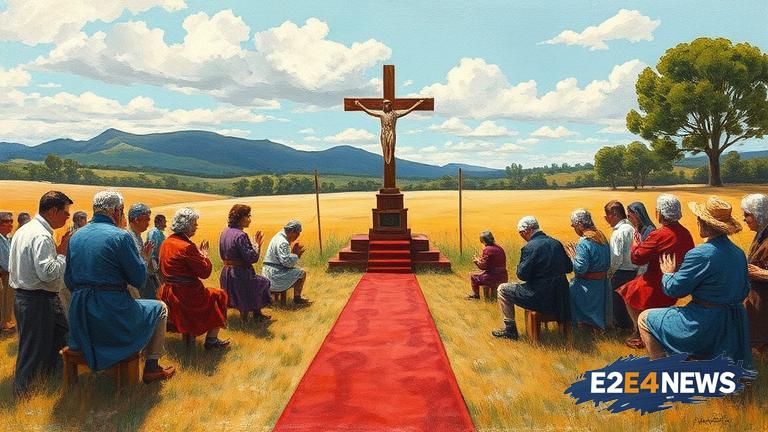The Moyne Shire Council in Australia has been starting its meetings with a Christian prayer for many years, but the tradition is now being debated by councilors. The debate was sparked by a suggestion that the prayer be replaced with a moment of silence or a non-denominational reflection. Some councilors argue that the prayer is an important part of the council’s tradition and heritage, while others believe that it is exclusionary and may make some members of the community feel uncomfortable. The council’s mayor has stated that the prayer is a way of acknowledging the community’s Christian roots and expressing gratitude for the opportunity to serve. However, others have pointed out that the community is becoming increasingly diverse and that the prayer may not be inclusive of all members. The debate has sparked a wider discussion about the role of religion in local government and whether it is appropriate for councils to promote a particular faith. Some argue that councils should remain secular and focus on serving the community, rather than promoting a particular religion. Others believe that the prayer is a harmless tradition that does not harm anyone and that it is an important part of the council’s identity. The council has decided to put the issue to a vote, with some councilors pushing for the prayer to be retained and others advocating for its removal. The outcome of the vote is uncertain, but it is clear that the debate has sparked a lively discussion about the role of religion in local government. The issue has also raised questions about the importance of tradition and heritage in local government, and whether these values should be prioritized over inclusivity and diversity. Some have argued that the prayer is a way of connecting with the community’s past and acknowledging the role that Christianity has played in shaping the community’s values and traditions. Others have pointed out that the community is changing and that the council should be focused on serving the needs of all members, regardless of their faith or background. The debate has also highlighted the challenges of balancing individual rights and freedoms with the need to promote a sense of community and shared values. As the council prepares to vote on the issue, it is clear that the decision will have significant implications for the community and will set a precedent for other councils in the region. The issue has sparked a wider discussion about the role of religion in public life and whether it is appropriate for governments to promote a particular faith. Some have argued that the prayer is a form of proselytizing and that it is inappropriate for a government body to promote a particular religion. Others have pointed out that the prayer is a voluntary activity and that members of the community are not required to participate. The debate has also raised questions about the importance of respecting the rights and freedoms of all members of the community, regardless of their faith or background. As the council considers its decision, it is clear that the issue is complex and multifaceted, and that there are valid arguments on both sides. The council’s decision will be closely watched by other councils in the region and will have significant implications for the community. The debate has highlighted the importance of promoting inclusivity and diversity in local government, and the need for councils to be sensitive to the needs and values of all members of the community. Ultimately, the decision will depend on the council’s values and priorities, and whether it believes that the prayer is an important part of its tradition and heritage or whether it is a barrier to inclusivity and diversity.
